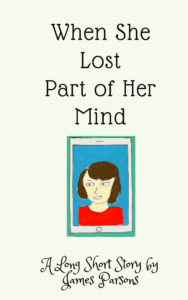Gathering enough information about a person in order to assess awareness and caring can be tricky. Just the phrase “gathering information about a person” sounds ominous. So here are some common sense suggestions. I haven’t scientifically tested these methods, but I am, as far as I know, still a member of society in good standing. And while they may not help, they at least don’t seem to hurt.
The first thing most people do when they want to know more about someone is to look at him or her. But beware not to intrude with your eyes. Most of us, at some point, have been made uncomfortable by a stare of another person. If the individual is imposing or sinister, it can be scary discomfort. If they appear to know you, but you don’t know them, expect awkward discomfort. And if you the person seems to like you or wants something from you, a range of comforts might open up – from very comfortable, to how can I get out of here –discomfort.
Try to gather information directly, while making eye contact. If you are in an unpleasant encounter, too much eye contact or questioning can escalate tensions. If your goal is mutually satisfactory outcomes, you may need to avoid making things worse by trying to learn too much too quickly. But if you are on a mission to understand someone’s awareness and caring, you can’t give up.
The deepest understanding often comes from conversation, full of questions and answers. People don’t like a lot of personal questions unless being asked by a person who cares about them, and even then they don’t always appreciate it. It’s often helpful to state why you are asking questions. While learning and sharing the truth about each other is an important objective, the emotions devoted to our sense of vulnerability can make it complicated. Figuring out the best way to express our interest in others will is goal of Participastory.
For example, if I tell someone I don’t know well, “Hi, the only reason I’m asking these questions is because I want to know how much you are aware of and care about other people,” that will probably make that other person nervous, unless she is running for office or some kind of advocacy job and has thought about that answer quite a bit already.
Looking and listening won’t always reveal everything someone’s awareness and caring. When those are insufficient, use your other senses. Smell, but from an appropriate distance, which is the standard area of personal space, at least 18 inches. And be sensitive to how loudly you do so; while it’s poor taste to smell someone secretly, sniffing loudly a person can send the wrong signal too. Touch can be okay, but mainly in the form of a hearty clap on the back, a hug, or a handshake. Touch can quickly send a negative signal about your level of awareness and caring, so if you have any reservation about it use, avoid it completely. Even greater caution should be exercised around gathering information through the sense of taste. Some cultures promote active cheek kissing as a form of greeting. In that situation you might collect some data about the person from the lip contact, but rarely should you use tongue. You need a good understanding of a person’s level of awareness and caring well before using tongue.
One of the best ways to learn about someone is to discuss him or her with friends and acquaintances. Again, be careful because there is high risk of discomfort, guilt feelings, and the invasion into family and friendship bonds. Just as I hope you know I’m trying to get a few chuckles by exploiting assumptions about gossip, you should realize that talking to people about others is a rich source of information. Sometimes you can learn more about the person from their friends than from that person directly. This is not to turn our society into a police state full of interviews and friendship canvasses, but to utilize some of the same techniques for finding bad actors to learn how to better appreciate our good ones.
Future posts will explore the best ways to learn more about each other, and in the process, ourselves.

